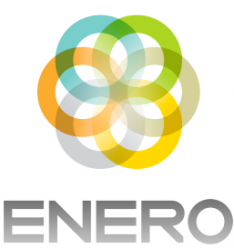Does Enero have a future?
 Back in the days when Enero was called Photon Group, it was Australia’s most talked about marketing services group. These days it is much smaller, and more conventionally run. But the stock market appears to value the company at less than the sum of its parts – raising the question of its long-term future. Robin Hicks reports in a feature that first appeared in Encore.
Back in the days when Enero was called Photon Group, it was Australia’s most talked about marketing services group. These days it is much smaller, and more conventionally run. But the stock market appears to value the company at less than the sum of its parts – raising the question of its long-term future. Robin Hicks reports in a feature that first appeared in Encore.
The bosses of what was once Australia’s largest marketing group, Enero, must be thoroughly fed up with being asked if is to be sold, broken up or has a miraculous recovery plan up its sleeve.
The company once known as Photon, and once worth around $2bn, has just released financial figures that do not make those questions go away.
An EBITDA loss of $76m for the first half of the financial year and operating profit of just $2.3m reflects not just the legacy of the company, but also the challenges its companies face within a tough market. The fact that continuing revenues were down to $135m from $175m in the same period a year before underlines this.


Juicy headline and a nice gossipy story Robin. But as ever, it’s from the outside looking in. I guess writing about the anatomy of a re-build would have been much more work for you. But in the meantime, we’re working hard to build our businesses; to compete, win and grow. I know it’s a lot less exciting but it’s what gets us up in the morning.
the share price is 39 cents not 3.5 …. just saying
Enero is just another name left over from a time when people thought that if you consolidated a bunch of nothings you would end up with something. Regarding agencies and pr companies as anything more than a bunch of people was never going to work. The money is to be made by producing something, not by skimming off the top of other peoples’ efforts.
In my professional opinion Enero’s problem is its name
Hi Joe,
Duly amended – thanks for flagging that up.
Cheers,
Tim – MUmbrella
931 staff with a revenue of $150m a year…..no wonder they aren’t profitable….ridiculous!
nailed it Groucho
What I love about the comments section here is that the doom and gloomers are so ‘obviously’ from the ones who it didn’t all quite work out for. Still eating away at them and still bitter. Ho hum.
@Theresa Hay what I like about the comments section here is that people with absolutely nothing to say get to feel superior by making inane comments and get to see their name on a screen.
Theresa Hay if it has worked out for you dear how come we’ve never heard of you/